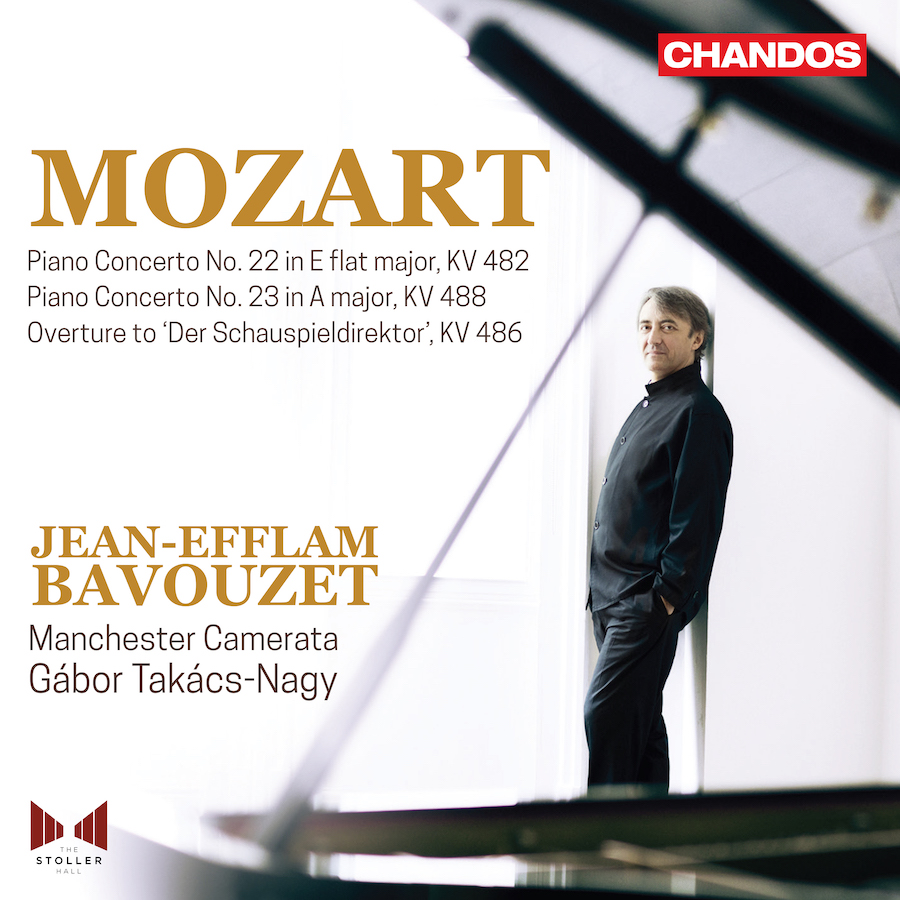Overture to The Impressario, K.486
Piano Concerto Nos. 22 & 23, K. 482 & K. 488
Jean-Efflam Bavouzet Piano
Manchester Camerata
Gabor Takacs-Nagy Conductor
Chandos 20166
Full Price

The Review
Manchester Camerata is fifty years old this year and it has been a distinguished half century. Before it was started as a project by Ralph Gonley under the auspices of BBC Radio Manchester, the city had two symphony orchestras but no professional chamber orchestra of any great standing.
The Camerata changed all that, partly thanks to the emergence of good halls that fitted its size, firstly at the Northern College of Music (opened in 1973 and not yet designated Royal) and more recently at Stoller Hall in Chetham’s School of Music on the other side of the city centre, where this series of discs was recorded.
Part of the idea of the complete set of the Mozart concertos with this team is to include some of the Chetham’s string students in the ensemble – a fabulous opportunity for them to learn the disciplines of professional recording sessions and a truly enlightened idea. The result is impressive.
Whether it is the hall’s acoustics or the skill of the Chandos team, there is a lovely warmth to this recording that envelops the listener. Bavouzet and Takacs-Nagy present the music without unnecessary frills but with enough decoration to lift the music off the page. They also draw from the orchestra a sound that has all the clarity and precision of a period instrument band without being one, though there are moments in the last movement of K. 482 when I’m not entirely sure everyone is as together as intended. Offsetting that, however, is the excellence of the wind playing and the perfect canter of the tempo.
In the Adagio of K. 488 the wind blend is immaculate but Bavouzet does not quite achieve the same level of concentrated lyricism. The finale is a delight so that can be forgiven. It races along – never rushed but articulated with a terrific sense of momentum. The field for records of the concertos is crowded and these performances are not quite definitive. That, though, is being pernickety and no-one would be disappointed to own them. The Overture does its job too: an enticing four minute curtain-raiser.
SM
